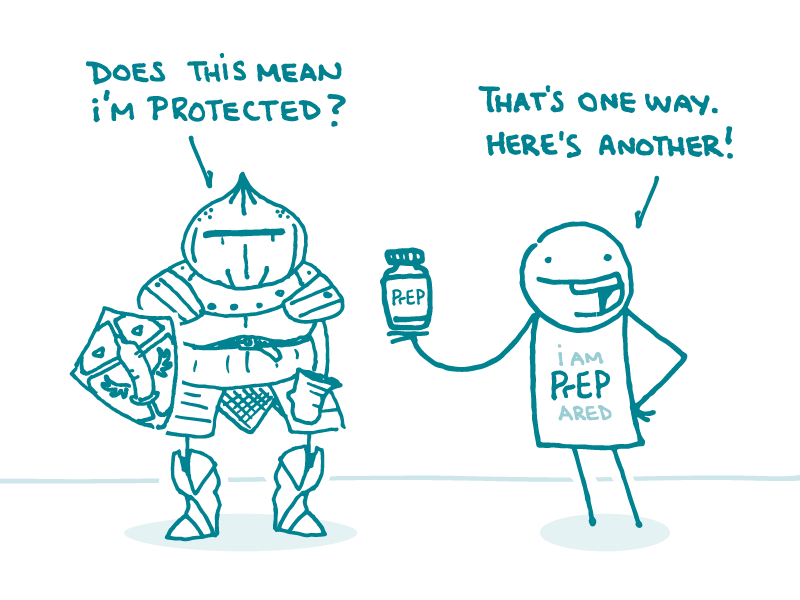
In 2014, the Centers for Disease Control and Prevention (CDC) made a front page-worthy decision that’s still worth noting today. In response to efforts by HIV activists, CDC decided to officially update its term for sex without a condom — from “unprotected sex” to “condomless sex.” (We love this so much that we almost want to use all caps to tell you how much. But we won’t.)
Why did this decision thrill us here at We ❤ Health Literacy Headquarters, even though the major news outlets in this country don’t think health literacy is front-page news? Because, dear readers, when people say “unprotected sex” in health information, what they’re actually talking about is sex without a condom.
“Unprotected” is a vague — and potentially misleading — term where sex is concerned. Consider these scenarios:
- A woman who’s on the pill has sex with a man, and they don’t use a condom. She may be protected from pregnancy, but she could still get an STD. Did she have protected sex or unprotected sex?
- A man has sex with his monogamous partner who’s HIV-positive. They don’t use a condom, but his partner has an extremely low level of HIV in his blood — and they’re both taking preventive medicines. Would it really be accurate to say that’s unprotected sex?
Interesting questions, right? And maybe even a little loaded since the word “unprotected” can convey a bit of judgment or blame — if you’re doing something “unprotected,” the implication is you’re being careless.
So CDC has sent the vague “unprotected sex” packing, replacing it with exactly what they mean: “condomless sex.” Although we prefer the phrase “sex without a condom,” this change is a huge improvement — and will hopefully be adopted by every sex ed teacher in the land.
This is a prime example of health literacy in action — and why it matters.
The bottom line: “Condomless sex” is more specific than “unprotected sex,” and it takes away the blame.
Browse recent posts